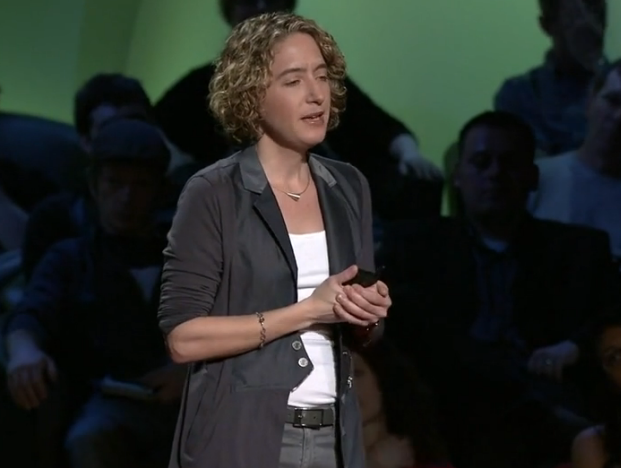Last year, for various reasons, I found myself listening to a lot of episodes of the Public Radio show This American Life.
因為一些緣故,去年我在廣播上聽了很多集的“我們的美國人生”。
And so I'm listening and I'm listening, and at some point, I start feeling like all the stories are about being wrong.
我聽著聽著,突然發現這些故事全和犯錯有關。
And my first thought was, "I've lost it. I've become the crazy wrongness lady. I just imagined it everywhere," which has happened.
我的第一個念頭是,“我完了,我寫書寫瘋了,四處都看到有關犯錯的幻覺”,說真的是這樣。
But a couple of months later, I actually had a chance to interview Ira Glass, who's the host of the show.
但幾個月后,我訪問了那個廣播節目的主持人Ira Glass。
And I mentioned this to him, and he was like, "No actually, that's true. In fact," he says,
我向他提到這件事,他回答我:“事實上,你是對的”,他說。
"as a staff, we joke that every single episode of our show has the same crypto-theme.
“我們這些工作人員總是開玩笑說每集節目之中的秘密主題都是一樣的。

And the crypto-theme is: 'I thought this one thing was going to happen and something else happened instead.'
這個秘密主題就是:“我以為這件事會這樣發生,結果其它事情發生了”。
And the thing is," says Ira Glass, "we need this.
他說,“但是,這就是我們需要的。”
We need these moments of surprise and reversal and wrongness to make these stories work."
我們需要這些意外,這些顛倒和錯誤,這些故事才能成立。”
And for the rest of us, audience members, as listeners, as readers, we eat this stuff up.
而我們身為觀眾、聽眾、讀者,我們吸收這些故事。
We love things like plot twists and red herrings and surprise endings.
我們喜歡故事轉折、令人驚訝的結局。
When it comes to our stories, we love being wrong.
我們喜歡在故事里看到犯錯。











